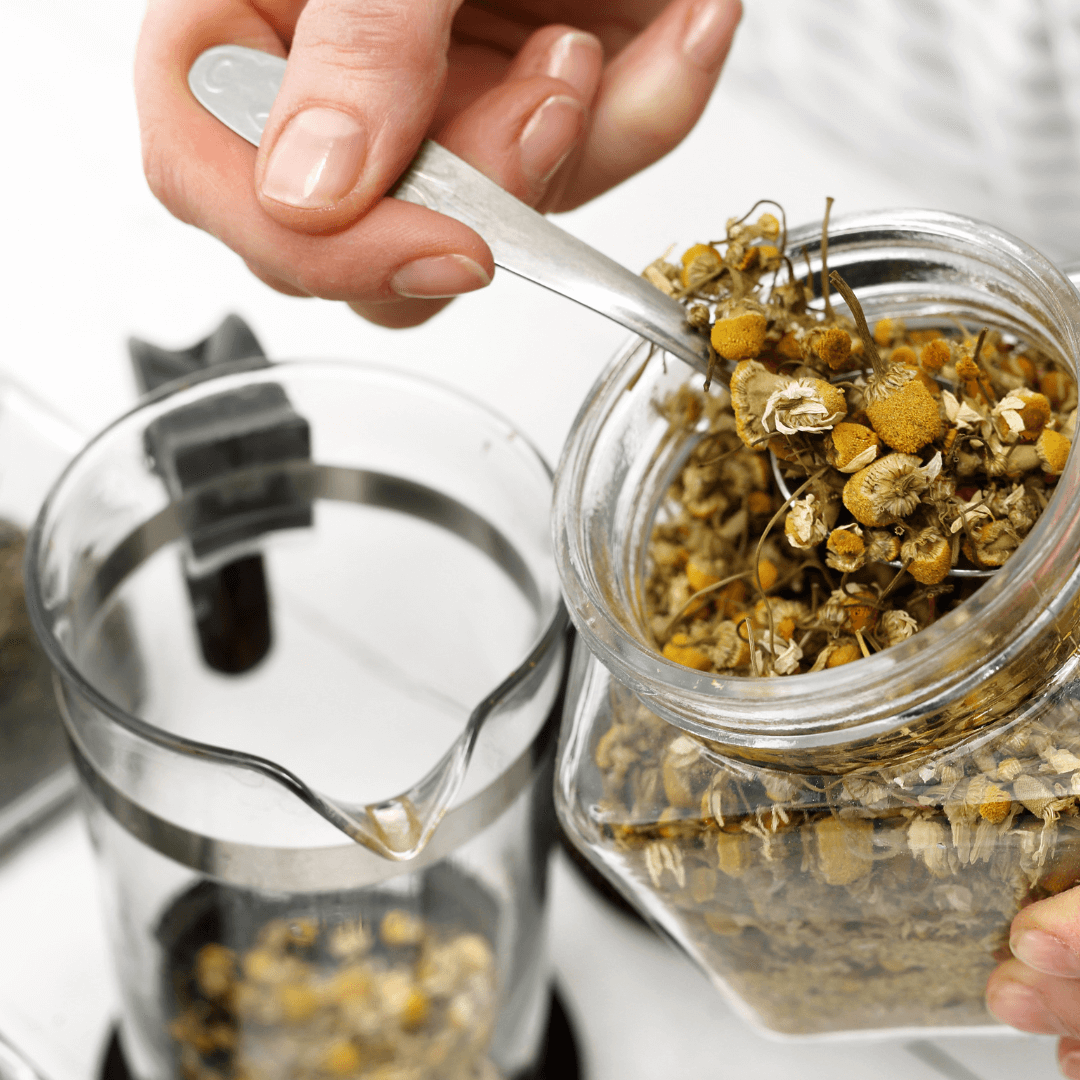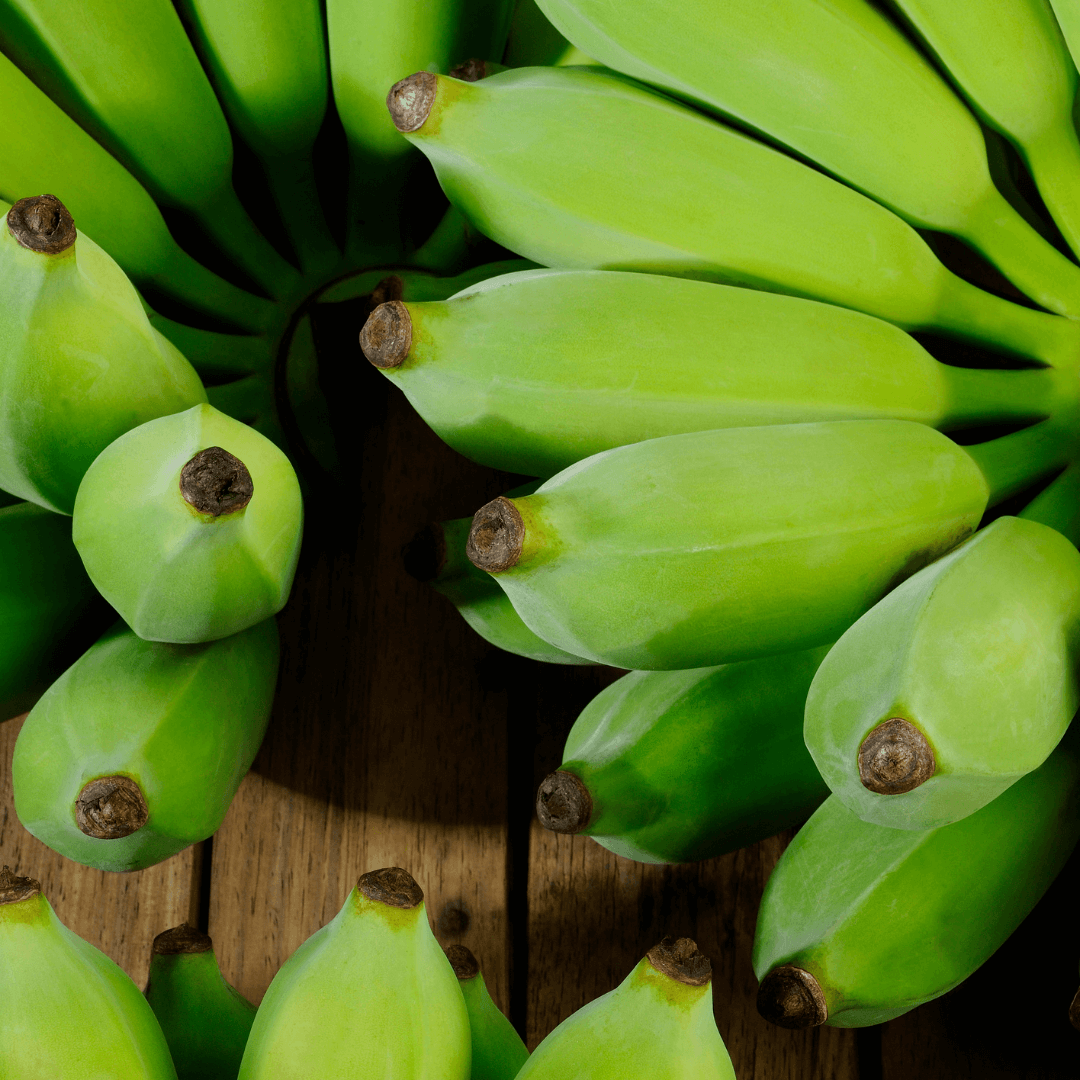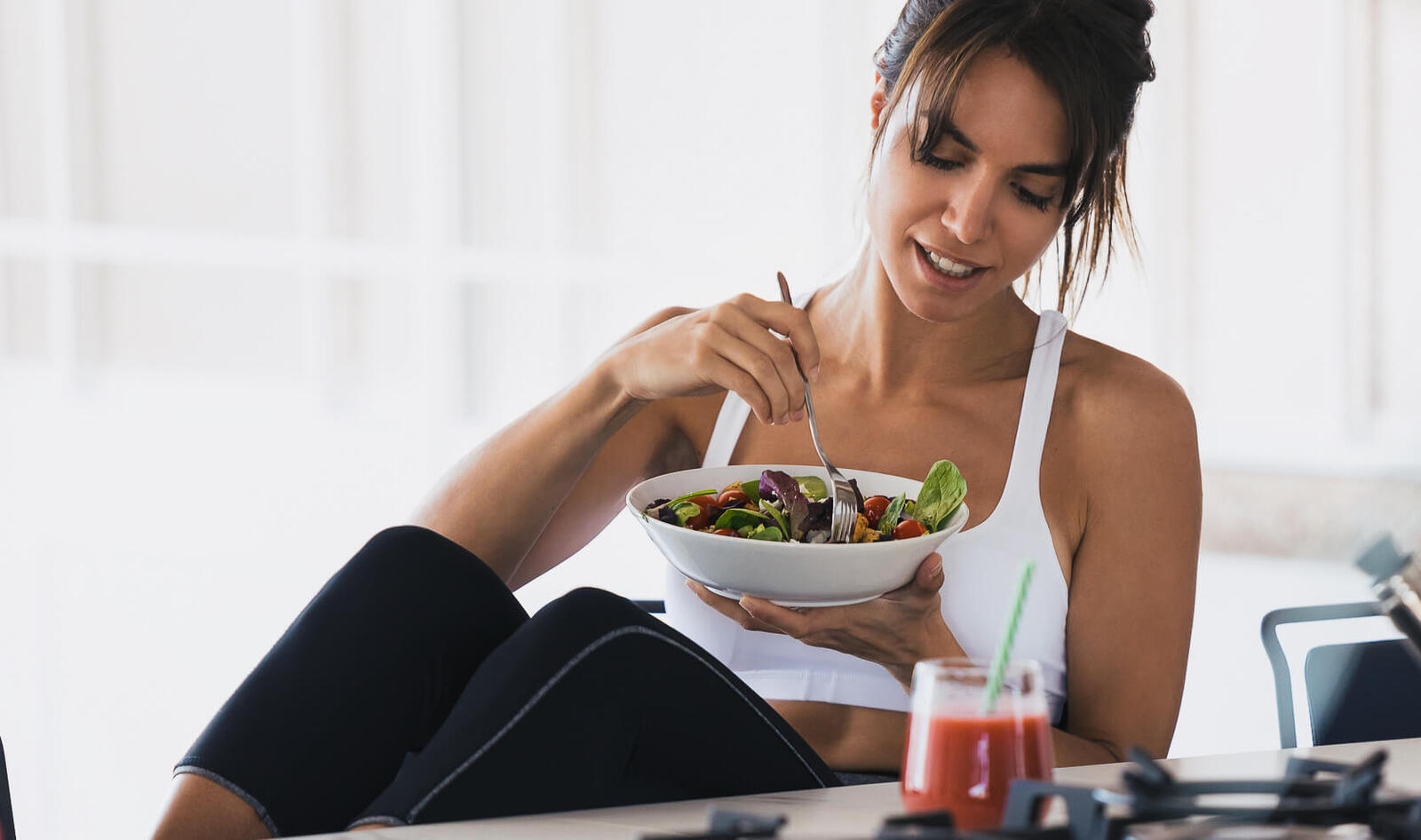
Most of us experience some form of stress. It’s the way that we react when we’re under pressure or when we’re in a situation that we feel we have no control over. It’s natural to seek out ways of feeling less stressed, and what works for some people won’t work for others—but, experts say that what we eat may also play a role.
What does stress do to the body?
Stress triggers the hypothalamus region at the base of your brain, which sends off hormonal and nerve warning signals throughout your body. As a result, your adrenal glands release cortisol and adrenaline.
Cortisol—the stress hormone—suppresses functions that your body doesn’t need in a fight-or-flight situation. This includes certain immune system responses, including your digestive system, your reproductive system, and growth processes. In turn, it releases simple sugars (glucose) into your bloodstream, enhances your brain’s use of glucose, and increases the availability of substances that repair tissues.
 Canva
Canva
Meanwhile, adrenaline boosts your energy levels, increases your heart rate, and elevates your blood pressure. After the perceived threat is over, your cortisol levels usually normalize so your body can resume its normal functions. But, if stressors are always present, then you might stay in fight-or-flight mode.
Over time, chronic stress can lead to high blood pressure, sleep problems, headaches, gut problems, trouble concentrating, anxiety, depression, and an increased risk of heart disease, high blood pressure, and stroke. According to the Mayo Clinic, everyone reacts to it differently, depending on genetics, life experiences, and how you manage stress.
Does diet affect stress?
So, what does science say about the diet-stress relationship? Certain foods can help lower cortisol while others have been linked to stress and anxiety.
Research shows that diets with a strong emphasis on whole, plant-based foods are associated with lower stress, anxiety, and depression. These foods include fruit, vegetables, grains, and legumes and encourage little use of oil and salt. Meanwhile, a lot of highly processed foods that are high in added sugars, refined grains, and saturated fats are linked to higher cortisol levels.
But, mastering the relationship between nutrition and stress isn’t always so straightforward. Chronic stress can make it harder for you to eat the foods that are known to help combat stress, Rhyan Geiger, RDN and owner of Phoenix Vegan Dietitian, tells VegNews.
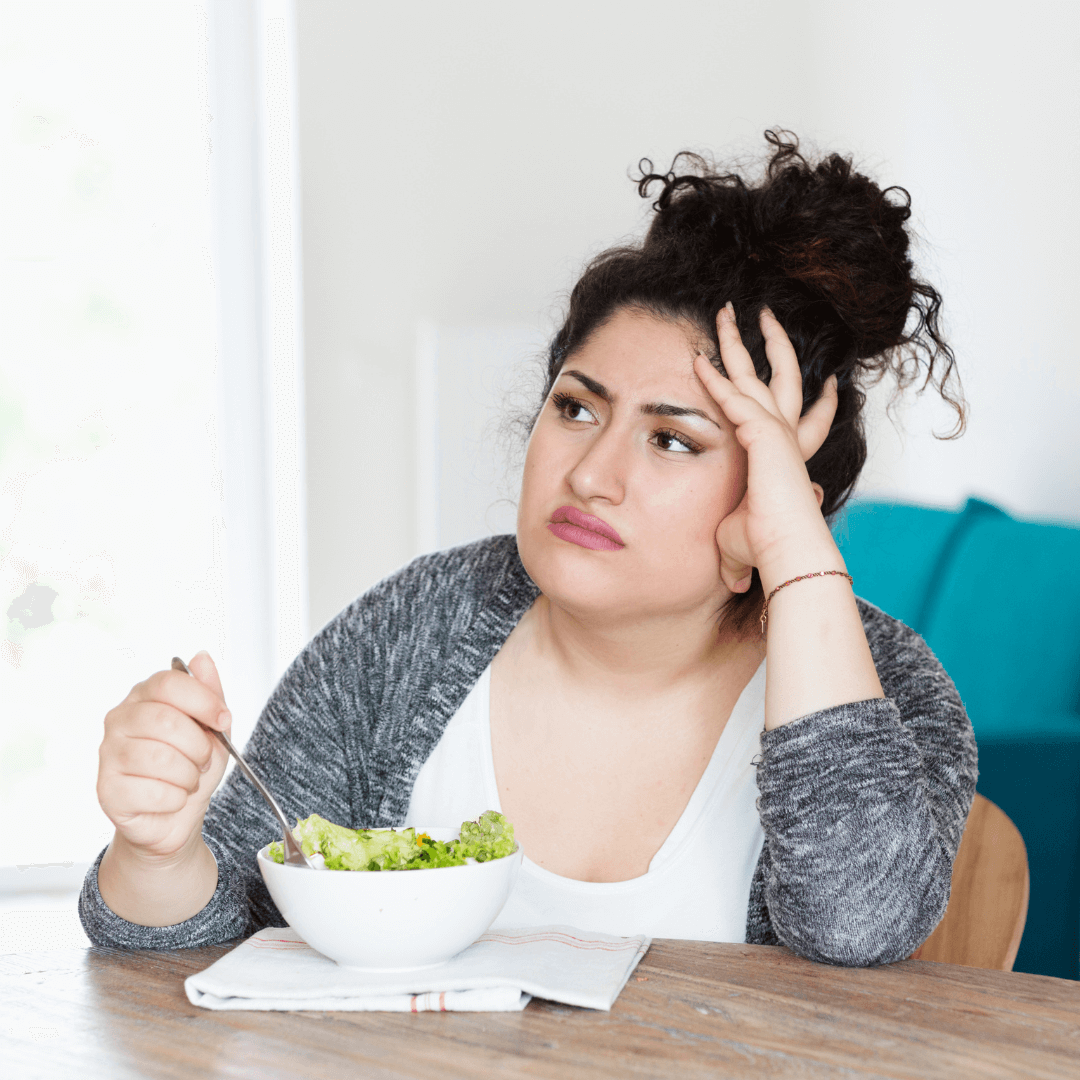 Canva
Canva
“When experiencing stress, people often crave foods that are higher in fat and sugar. Sometimes stress can even create a feeling of decreased motivation which leads to skipping or forgetting meals,” she says.
These cravings for highly processed foods are due to increased cortisol levels. Geiger adds: “When adrenaline is increased from stress, it can decrease appetite.”
While diet plays a role in how you experience stress, there are ways to reduce stress beyond eating vegetables and avoiding highly processed foods.
This includes staying hydrated, adequate sleep, getting enough physical activity, and reducing alcohol and caffeine.
A professional could also help if it’s available to you. “If you find that your stress is not improving, reach out to a mental health expert like a therapist for stress management techniques,” Geiger says.
Vegan foods that can help relieve stress and anxiety
In general, you should avoid highly processed foods and gravitate towards meals made from whole, plant-based ingredients.
Keep in mind that not all packaged foods count as “highly processed.” Frozen pizza, fried food, deli meats, bacon, most fast food, cookies, and snack cakes count as highly processed, but frozen or canned vegetables, frozen fruit, canned beans, and whole grain pasta are considered healthy and convenient.
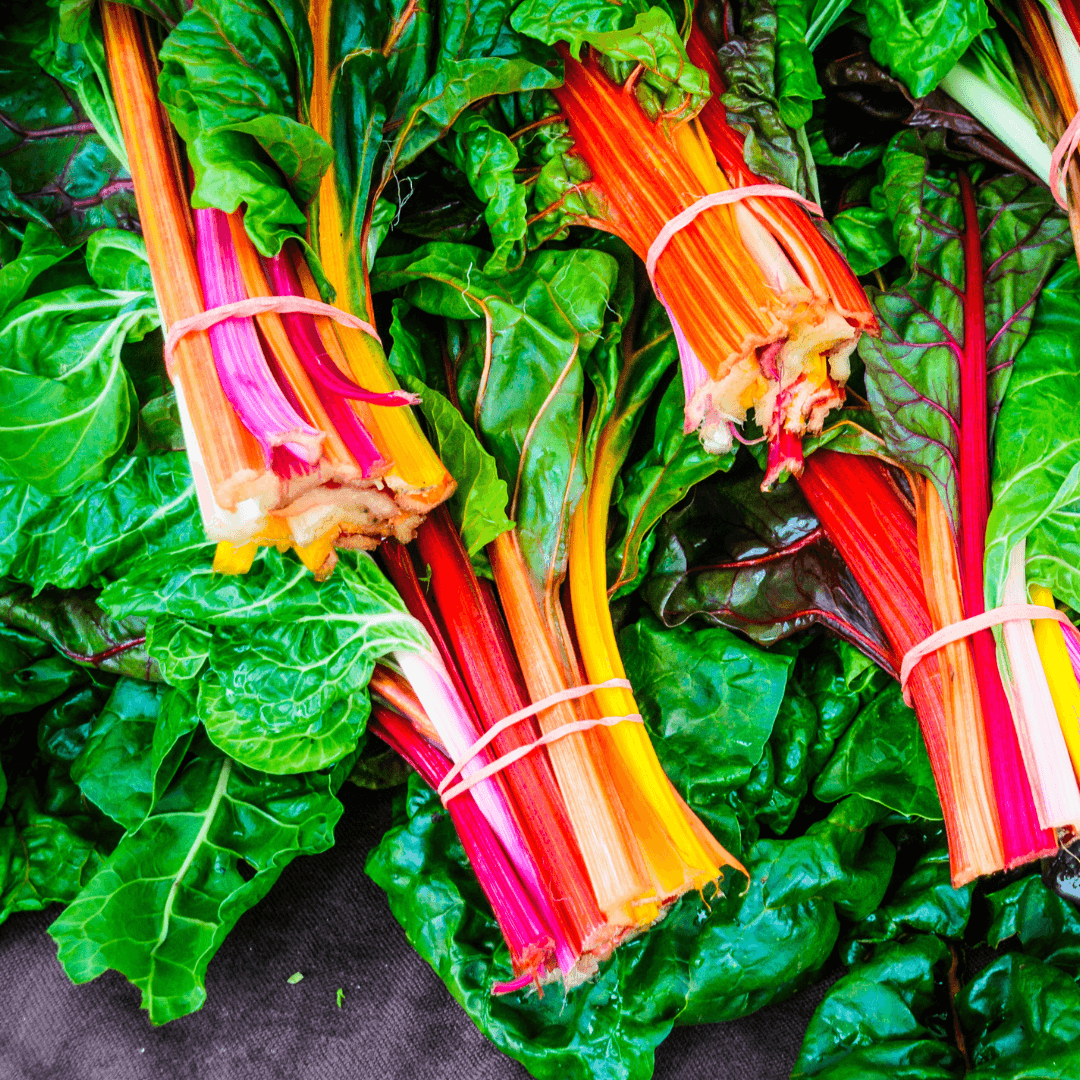 Canva
Canva
1 Magnesium-rich food
Magnesium plays a vital role in stress and anxiety levels and has a strong influence on the part of the brain that regulates stress hormones. Hypomagnesemia—also known as magnesium deficiency—is associated with higher stress and anxiety levels. Research shows that a higher magnesium intake could help reduce feelings of stress, anxiety, and depression.
“Foods like Swiss chard, nuts and seeds, legumes, and whole grains all have magnesium to help with the body’s stress response,” Geiger says. As far as nuts and seeds are concerned, almonds, cashews, and pumpkin seeds are good sources of magnesium.
Other magnesium-rich foods include tofu, kale, spinach, collard greens, oats, avocados, bananas, and dark chocolate. A magnesium-rich breakfast could look like oatmeal with banana, nuts, and seeds or a tofu scramble with spinach and whole-grain toast.
Try this recipe: Curry-Spiced Vegan Tofu Scramble
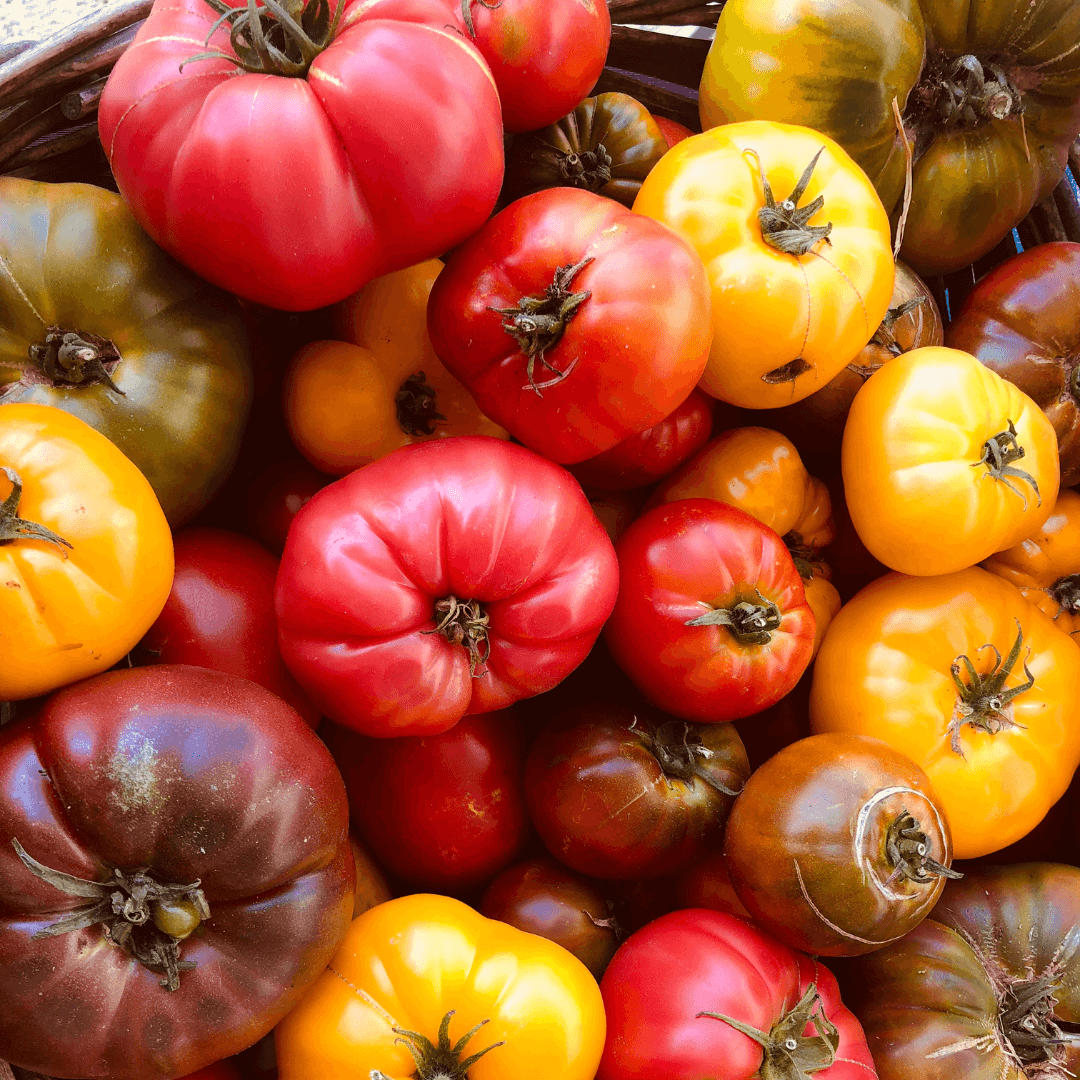 Canva
Canva
2 Anti-inflammatory foods
Untreated, chronic inflammation can contribute to heart disease, arthritis, and depression over time, according to Hope Ricciotti, MD, and Toni Golen, MD, of the Harvard Women’s Health Watch. And, research shows that psychological stress can cause physical inflammation in your body. Anti-inflammatory foods could help your body combat one of the effects of stress.
“Because stress can increase cortisol and elevated levels of cortisol can cause inflammation, foods that decrease inflammation are ideal,” Geiger says. “Food rich in color, like berries and sweet potatoes, are a good source of antioxidants to reduce inflammation.”
Other anti-inflammatory vegan foods include dark leafy greens, tomatoes, almonds, walnuts, oranges, and extra virgin olive oil. Limit the foods that cause inflammation, such as refined carbohydrates, fried foods, red meat, processed meat, soda, and other sugary beverages.
Try this recipe: Green and Fruity Vegan Farmers’ Market Smoothie
3 Green tea
Humans have been drinking tea for centuries. Its uses range from medicinal to ceremonial to recreational.
Research shows that drinking green tea can improve your mood. This is due to an amino acid called L-theanine, which is known to improve mood, cognition, and the symptoms of stress and anxiety. Green tea also gives you a temporary boost in alertness thanks to its caffeine content.
“Caffeine in green teas like matcha may be okay, but the caffeine in coffee and energy drinks should be avoided,” Geiger says. Unfortunately, research suggests that habitual coffee drinkers may experience higher levels of stress. Matcha and oolong tea are especially rich in L-theanine.
Try this recipe: Energizing Vegan Matcha Chia Pudding
4 Chamomile tea
Chamomile is one of the world’s oldest herbal remedies. Usually served in tea form, it’s been used to promote restful sleep and to calm nerves. Chamomile contains a wide range of flavonoids that are known to have anti-inflammatory properties. It’s believed that the flavonoid apigenin is responsible for chamomile tea’s calm-inducing effects.
5 Prebiotic-rich foods
There are hundreds of trillions of microorganisms living in your gut, working hard to break down food and bolster your immune system. These tiny living things feed on prebiotics, a compound found in fermentable soluble fibers such as resistant starches, inulin, and pectin.
Resistant starches are present in food that has been cooked and cooled, like potatoes, oats, rice, legumes, and green bananas. Reheating the food after cooling won’t affect the resistant starch levels. Inulin is found in many fruits and vegetables, including asparagus, burdock root, chicory root, soybeans, onions, leeks, garlic, and dandelion greens.
Pectin, a starch found in fruit, is often used to make jams and as an alternative to gelatin in some vegan candies. You can get it from apples, pears, plums, guava, peaches, strawberries, and oranges. Some vegetables—carrots, peas, green beans, and tomatoes—contain pectin, too.
There is still so much that we don’t know about the human gut’s influence on overall health. There is even contradictory information surrounding probiotic-rich fermented foods’ effect on stress and anxiety. According to a systematic review of the probiotic food-stress relationship, some studies have shown that they have a positive effect. However, others indicate that probiotics may increase stress levels.
Try this recipe: Vegan Garden Vegetable Fried Rice
This post was originally published on VegNews.com.

